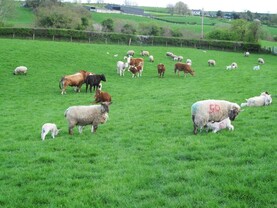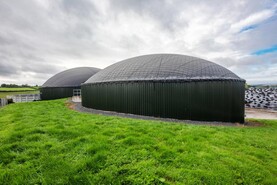The European Commission has proposed placing tariffs on grain imported from Russia and Belarus this Friday 22 March.
The tariffs would be placed on cereals, oilseeds and derived products coming from these two countries into the European Union (EU).
A statement from the European Commission said the tariffs are designed “to be high enough to discourage current imports”.
“In practical terms, the tariffs in this case achieve the same result in the EU domestic market for grain as sanctions would, namely, limiting access to the EU market and denying Russia export revenue.
“This is due to the tariffs being so high that they effectively suppress Russian exports to the EU,” it said.
The Commission added that it is proposing tariffs and not sanctions to allow Russian grain to transit or be stored in the EU, therefore not impacting food security in other countries.
“Importantly, the proposed tariffs will therefore not affect global food security, particularly for developing countries.
“On the contrary, they are expected to create an incentive for Russia to export to non-EU destination markets, including developing countries,” it said.
It is expected the proposed measures will result in 5m less tonnes of grain entering the EU per annum.
The Commission said it expects this to be filled by domestic production, as well as imports from countries outside the bloc.
“This shortfall in supply will be filled partially by EU domestic production and therefore, benefit EU farmers who will be able to sell in the EU.
“In addition, the shortfall is expected to be partially filled by imports from third countries which traditionally supply the EU market such as the US, Brazil, Ukraine, Serbia or Argentina,” the statement said.
Timing
On why the tariffs are being proposed now, the Commission said there is currently a higher-risk Russia will use its exported grain products to create disturbances in the EU market.
The EU farming community in particular has expressed concerns about the risk of market destabilisation, as have a growing number of EU member states
“As Russia's grain surplus increases, partially due to illegally seized Ukrainian grain and its ability to sell to world markets has been negatively impacted by Ukraine gradually regaining access to world markets, there is a greater risk that the EU market could become a destination for growing Russian surpluses.
“The EU farming community in particular has expressed concerns about the risk of market destabilisation, as have a growing number of EU member states,” it said.
Import levels
Russia exported 4.2m tonnes of cereals, oilseeds and derived products to the EU in 2023, worth €1.3bn.
Belarus exported 610,000t of cereals, oilseeds and derived products to the EU in 2023, with a value of €246m.
Considering all trading partners, in 2023 the EU imported 37.2m tonnes of cereals and 39.1m tonnes of oilseed products, compared to 21.7m and 39.6m tonnes, respectively, in 2021.






 This is a subscriber-only article
This is a subscriber-only article










SHARING OPTIONS: